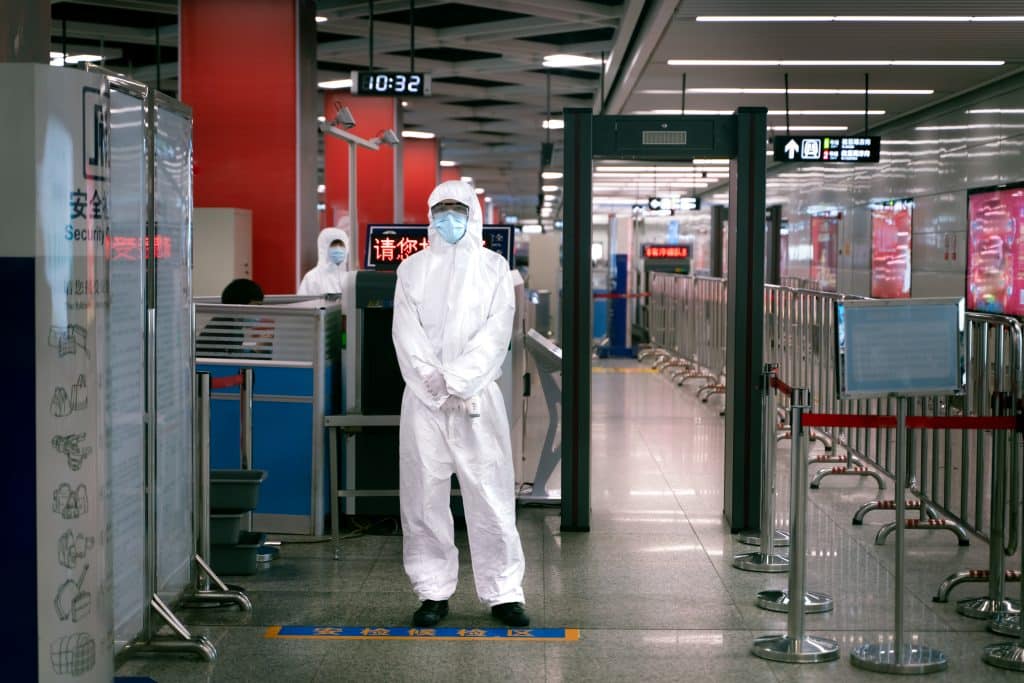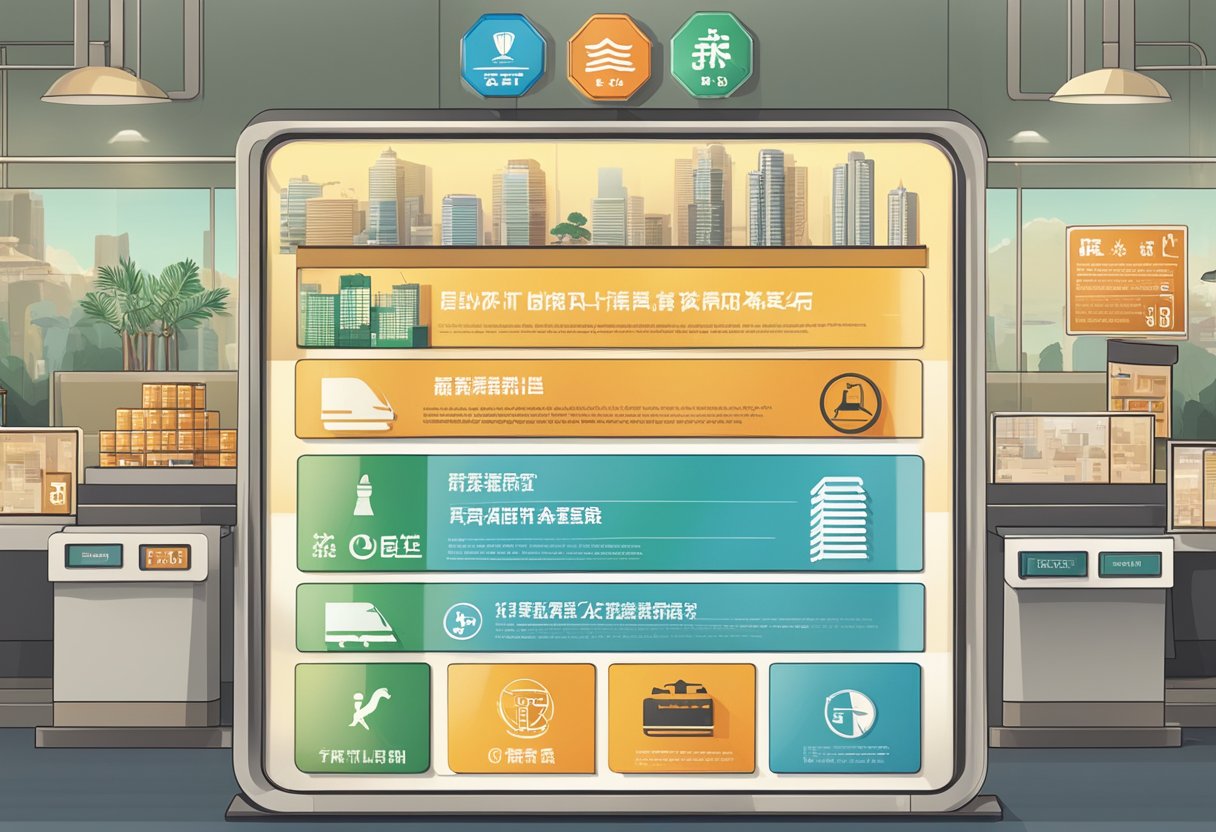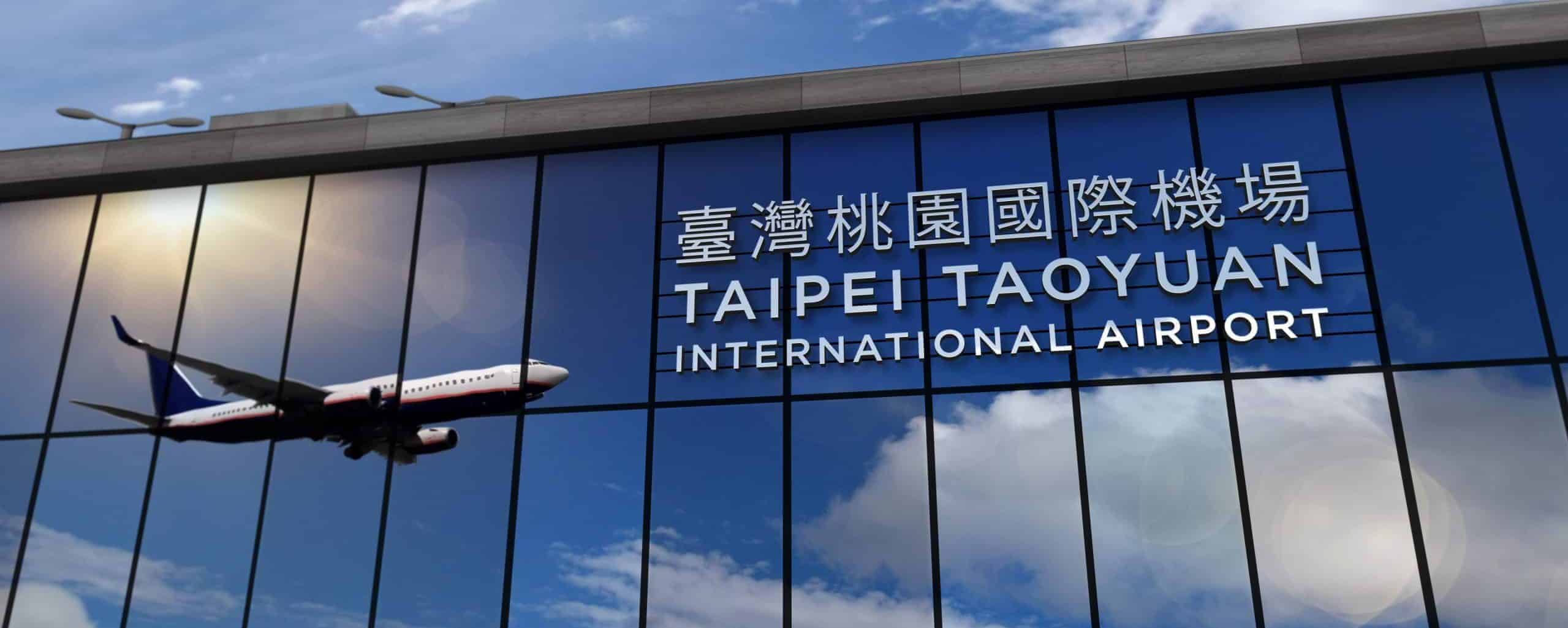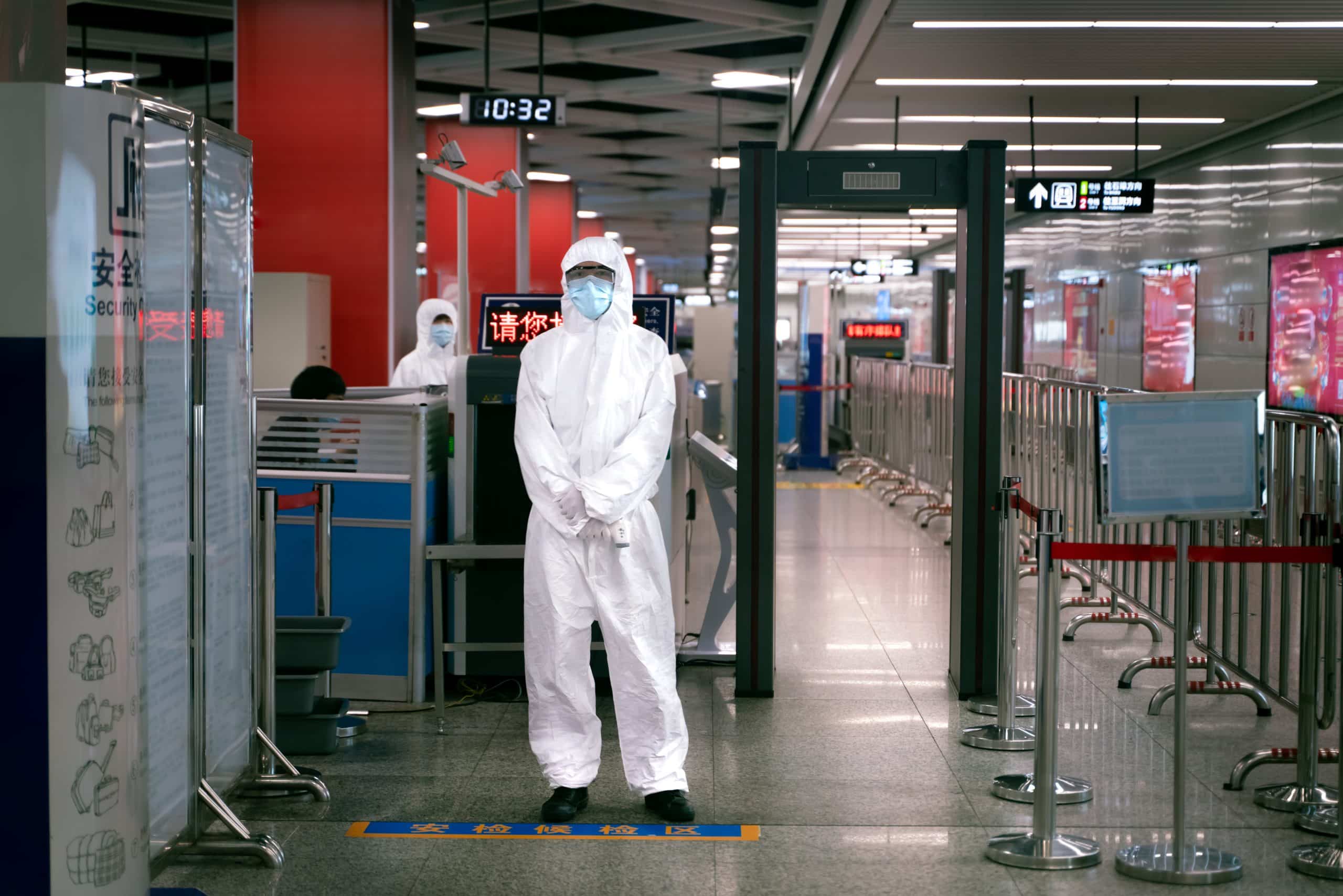Taiwan Travel Restrictions: Essential Guide for 2023 Visitors
Travel restrictions can greatly affect the plans of those looking to visit Taiwan, a vibrant island nation known for its bustling cities and stunning natural landscapes. With the ongoing global health situation, there have been various measures implemented to safeguard the well-being of both citizens and visitors. These measures range from quarantine requirements to entry limitations and are subject to change as the situation develops. It’s imperative for travelers to stay informed about the most up-to-date policies to ensure a smooth journey.

Understanding the current travel restrictions, including entry requirements and health and safety guidelines, is crucial for anyone planning to travel to or from Taiwan. Equally important is being aware of visa policies and procedures which may have also been affected due to the pandemic. Accessibility to transportation and accommodations may be different from normal operations, and tourists should seek the latest information to facilitate their travel plans. As countries aim to bolster tourism while ensuring safety, the economic impact and international relations also play a pivotal role in the formation of these travel restrictions.
Key Takeaways
- Current restrictions and entry requirements are vital for intending travelers to understand before planning a visit to Taiwan.
- Travelers should remain informed about Taiwan’s health and safety guidelines as they evolve in response to COVID-19.
- Visa procedures, transportation options, and accommodation availabilities may have been adjusted due to the pandemic, highlighting the need for tourists to stay updated.
Current Travel Restrictions
Taiwan has implemented specific travel restrictions and requirements to ensure the safety of both travelers and residents amidst the ongoing global health concerns.
Entry Requirements
Taiwan offers visa-exempt entry for certain countries for stays of less than 90 days; however, this does not apply to tour groups from some regions. All travelers are advised to check with the Central Epidemic Command Center for the most up-to-date entry rules before planning their trip to Taiwan.
COVID-19 Testing Protocols
Travelers from specific countries, including China, may be subject to PCR testing upon arrival. Authorities require individuals testing positive for COVID-19 to adhere to Taiwan’s health guidelines, which are subject to change in response to the pandemic situation.
Quarantine Measures
Quarantine measures in Taiwan are dynamic and can include a mandatory quarantine period for travelers arriving from certain areas. The quarantine period and specific requirements are informed by the Central Epidemic Command Center and can vary based on the evolving epidemiological assessments.
Visa Policies and Procedures
Taiwan’s visa framework is designed to be approachable for various travel purposes, including tourism, business, and family visits. The Bureau of Consular Affairs offers comprehensive guidelines to help travelers navigate the application process and understand the different types of visas available.
Types of Visas
Taiwan issues several kinds of visas, catering to different travel needs:
- Visitor Visas: For those intending to stay in Taiwan for less than six months for purposes such as tourism or business.
- Resident Visas: For purposes of work, study, or residency.
Each visa category has specific requirements that applicants must meet. Details regarding the different visa types and their prerequisites are provided by Taiwan’s National Immigration Agency.
Application Process
To apply for a Taiwanese visa, the following steps are generally involved:
- Prepare Required Documents: A valid passport, an application form, evidence of return transport, proof of lodging, and financial sufficiency.
- Submission: Applicants can submit their visa applications to the nearest Taiwanese diplomatic mission. Some may also qualify for Taiwan transit visa options.
- Processing: The duration for visa processing varies, and expedited services may be available for an additional fee.
It is crucial that the application form is completed accurately and all paperwork aligns with the stipulated guidelines from the relevant authorities.
Visa-Exempt Entry Scheme
Taiwan offers a visa-exempt entry scheme for citizens from over 60 countries, permitting stays of 30 or 90 days without a visa. To benefit from this scheme, travelers must:
- Have a passport valid for at least six months upon entry.
- Possess an onward or return ticket.
The visa-exempt entry details, along with the list of eligible countries, are specified by the Bureau of Consular Affairs. This scheme is designed to facilitate easy and quick access to Taiwan for eligible travelers.
Health and Safety Guidelines

In Taiwan, adherence to health and safety guidelines is critical for ensuring public safety during travel. The government has implemented specific measures related to mask mandates, public health protocols, and medical resources to mitigate the risk of COVID-19 transmission.
Mask Mandates
In Taiwan, wearing masks is compulsory on public transportation and in most indoor settings to prevent the spread of COVID-19. Travelers should carry spare masks at all times and be vigilant about mask usage mandates, which are strictly enforced.
Public Health Protocols
Upon entry into Taiwan, travelers must provide proof of a negative COVID-19 test and comply with mandatory quarantine regulations. Rapid tests are widely used for symptomatic individuals or those identified as having been in contact with a positive case. The authorities continue to monitor the situation closely and adapt epidemic prevention guidelines as needed.
Medical Resources
Travelers in Taiwan have access to a robust healthcare system should they require medical attention. Symptoms of COVID-19 should prompt immediate contact with health professionals, who can guide individuals to the appropriate facilities for testing or treatment. It’s advised to understand the location of clinics and hospitals in proximity to one’s accommodation.
Note: It is important for travelers to remain updated on the latest health and safety guidelines issued by the Taiwanese government, as these may change in response to the ongoing pandemic situation.
Transportation and Accommodations
Travelers to Taiwan can expect efficient airport services and diverse public transportation options, alongside accommodation regulations designed to ensure comfort and safety.
Airport Operations
Taiwan’s primary aviation hub, Taoyuan International Airport, operates with two terminals, Terminal 1 and Terminal 2, efficiently managing a significant influx of international and domestic flights. With streamlined customs and immigration processes, the airport ensures swift and secure entry and exit procedures.
Public Transportation Systems
Once in Taiwan, visitors can navigate the island easily thanks to a comprehensive and reliable public transportation network. The High Speed Rail (HSR) connects major cities at impressive speeds, while city-based Mass Rapid Transit (MRT) systems, including the MRT in Taoyuan, provide convenient urban travel. Taxis are readily available, adhering to standardized fares and offering a more private mode of transportation.
Accommodation Regulations
Hotels and other accommodations in Taiwan follow strict regulatory standards to ensure the wellbeing of visitors. This includes maintaining hygienic environments, providing essential amenities, and complying with safety protocols. With the easing of COVID-19 measures, travelers now have the freedom to choose from a variety of lodgings without quarantine restrictions, including hostels, hotels, and dormitories. It is important for guests to follow local guidance, such as wearing masks in public areas when required.
Tourist Information
Travelers planning to explore Taiwan will find a wealth of culture, attractions, and culinary experiences awaiting them. This section provides essential information for tourists desiring to immerse themselves in Taiwan’s offerings, from Taipei’s bustling cityscape to the tranquil shores of Kaohsiung.
Cultural Etiquette
In Taiwan, respect for tradition and social norms is paramount. Visitors should be mindful of local customs such as removing shoes before entering homes and some temples. Offering and receiving items with both hands, especially money when making purchases, is a sign of respect. It’s also recommended to understand basic Taiwanese gestures and expressions of politeness like saying “xièxiè” (thank you) to foster goodwill.
Attractions and Activities
The diverse landscape of Taiwan offers a variety of attractions, from the skyscrapers of Taipei, including the famous Taipei 101, to the scenic Sun Moon Lake. Adventure enthusiasts can revel in hiking through Taroko Gorge or surfing in the Pacific waters. For a unique experience, visitors can learn about things to do in Taoyuan County, providing a mix of cultural sites and modern entertainment options.
Local Cuisine
Taiwan’s cuisine is a reflection of its cultural melting pot, with influences from Chinese, Japanese, and native Taiwanese traditions. Night markets are culinary hotspots where tourists must try local specialties like stinky tofu, beef noodle soup, and bubble tea. For those staying in Taoyuan, trying the highly-regarded local flavor becomes convenient with the plethora of dining options at or near the Fullon Hotel Taoyuan, blending traditional dishes with modern culinary techniques.
With these tourist tips, currency notes, and etiquette pointers, visitors can confidently navigate and savor the tourism landscape of Taiwan. Whether it’s enjoying the vibrant city life of Taipei and Kaohsiung or embracing the natural beauty scattered across the island, tourists will surely have memorable experiences to take back home.
Economic Aspects of Travel
Traveling to Taiwan brings various economic considerations that affect both individuals and corporations. This section explores the monetary factors one must account for, from handling the local currency during a stay to comprehending business travel norms within the island nation.
Currency and Banking
Taiwan’s official currency is the New Taiwan Dollar (TWD), and understanding the currency and banking systems is essential for any traveler. Banks in Taiwan are typically open on weekdays from 9 am to 3:30 pm, offering services such as currency exchange and gold bar transactions. The Central Bank of Taiwan ensures the stability of TWD and supervises banking operations. For convenience, several locations at Taiwan Taoyuan International Airport provide currency exchange services, allowing travelers to obtain TWD upon arrival (airport money exchange rate).
Tax Regulations
Taiwan’s tax system has implications for travelers, especially those on business trips. Short-term business travelers should be aware that their income in Taiwan may be subject to withholding tax, depending on the duration of their stay and total amount earned. It’s advisable to consult a tax professional well-versed in local legislation to determine the exact tax obligations.
Business Travel
Traveling to Taiwan for business purposes has been a growing trend, and understanding the economic backdrop is crucial. With Taiwan aiming to bolster economic recovery, business opportunities in sectors such as tourism are on the rise. Business travelers should be informed about local market conditions and any potential restrictions or incentives that might affect their industry. Finding affordable travel options, like cheap flights to Taipei, can considerably reduce trip costs for business entities looking to explore or expand in the Taiwanese market.
Natural Disaster Preparedness
When planning travel to Taiwan, it is essential for visitors to be aware of the natural disaster risks inherent to the tropical and subtropical climate. Taiwan is prone to typhoons and earthquakes, making understanding and adhering to safety protocols crucial for travelers.
Typhoon Season
Taiwan faces typhoon season from June through October, during which the island can experience high winds and heavy rainfall. The government of Taiwan maintains a robust response system for typhoons, including early warnings and strategic preparations.
Before Typhoon Arrival:
- Monitor local news: Stay updated with the Central Weather Bureau’s advisories.
- Emergency Kit: Prepare a kit with essential supplies including water, non-perishable food, a flashlight, batteries, and first aid.
During a Typhoon:
- Shelter: Seek secure shelter away from windows and doors.
- Avoid travel: Postpone outdoor activities until the typhoon has fully passed.
Earthquake Safety Protocols
Taiwan is located on the Pacific Ring of Fire, making it susceptible to earthquakes. It is vital that visitors understand and follow earthquake safety protocols.
Be Prepared:
- Know the evacuation routes: Familiarize yourself with the hotel or building’s evacuation plan.
- Emergency Supplies: Maintain a portable emergency kit similar to the typhoon kit.
During an Earthquake:
- Drop, Cover, and Hold On: Get under sturdy furniture, protect your head and neck, and hold on until the shaking stops.
- Stay Indoors: If indoors, stay there until the shaking ceases and it’s safe to exit.
Adherence to these preparedness measures can significantly improve safety for travelers in Taiwan during the event of natural disasters.
International Relations
In regards to travel restrictions, Taiwan’s international relations, especially with Mainland China and various global partners, significantly influence its policies.
Taiwan and Mainland China
Taiwan has managed a delicate relationship with Mainland China, which has direct implications on travel policies. For instance, Taiwan’s China policy-making Mainland Affairs Council stated that business people from China are permitted to apply for short-term visits, such as for attending exhibitions. However, political tensions frequently impact travel advisories and the ease of cross-strait travel.
Global Partnerships
Taiwan maintains strong relationships with countries like the United States, Japan, Hong Kong, and Australia, fostering various levels of travel freedom and collaboration. These partnerships often reflect in mutual visa agreements and travel advisories. For instance, a U.S. travel advisory dated July 11, 2023, suggests exercising normal precautions when visiting Taiwan. Such advisories from global partners sustain Taiwan’s image as a safe and open destination for international travelers.
Frequently Asked Questions
In addressing some of the most pressing concerns about travel to Taiwan, the following questions serve to clarify current regulations and entrance protocols.
What are the current COVID-19 entry requirements for travelers to Taiwan?
Travelers to Taiwan should be informed about updated COVID-19 entry requirements that as of August 15, 2023, require suspected cases or those testing positive to follow a “0+n self-health management” approach.
Has Taiwan imposed any new travel bans or restrictions for 2023?
There have been no new travel bans announced for 2023, but travel restrictions are dynamic and subject to change, so travelers should always verify the latest information before planning their journey.
What are the visa requirements for tourists looking to visit Taiwan?
For tourism, visas are not required for stays of less than 90 days. However, visitors should ensure that their passports are valid for the duration of their stay.
Are US citizens currently allowed to enter Taiwan, and are there any special considerations?
US citizens can enter Taiwan and there are no special considerations as of the latest updates, provided they adhere to the prevailing travel advisories and self-health management practices.
What safety measures should travelers be aware of when planning a trip to Taiwan this year?
Travelers should be aware of and respect the safety measures including Taiwan’s recommendation for Hepatitis A vaccinations prior to visiting.
Can international visitors now enter Taiwan, and what are the protocols for doing so?
International visitors can now enter Taiwan and, since October 13, 2022, there has been no mandatory quarantine for international travelers. However, there is a ‘0+7’ self-health management scheme in place for all arrivals.

